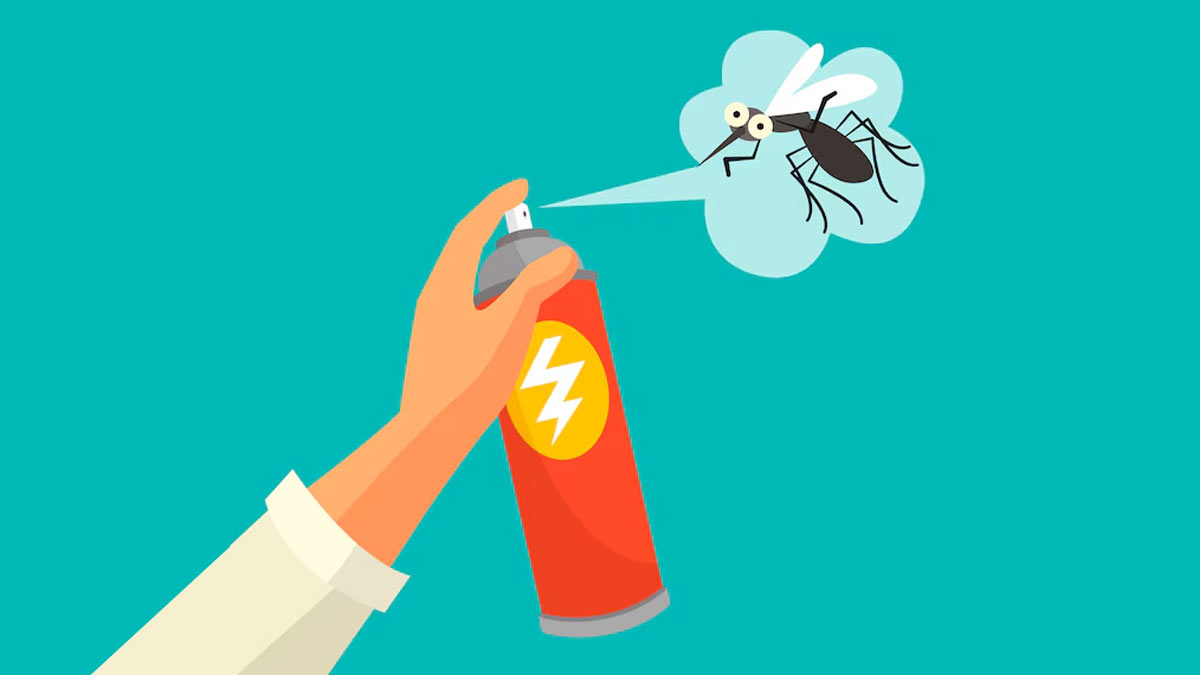
Whether you're hanging out in your own garden, taking a stroll in the park, or simply trying to make it through summer nights without becoming a mosquito buffet, repellents have become a way of life for many. But as convenient as they are, more and more consumers are wondering if daily use of mosquito repellents are safe. Well, to solve this mystery once and for all, we reach out to our expert Dr Bhumesh Tyagi, Consultant, General Medicine and Physician, Shardacare, Health City, Noida to understand the good and bad of these easily avaible products, and how to use them responsibly. Read ahead to know if you should continue using it on your and your kids.
Table of Content:-
Why We Use Mosquito Repellents
Mosquitoes are not just a nuisance. They are vectors of dangerous diseases such as dengue, Zika virus, chikungunya, West Nile virus, and malaria in most other places. Even in low-risk areas, bites from mosquitoes can cause skin irritation, allergic responses, or infections due to scratching.
That's where repellents enter the picture. They are formulated to create a buffer zone between you and biting insects, reducing your appeal to them.
Benefits of Daily Use of Mosquito Repellents
According to Dr Tyagi, a few benefits of using mosquito repellents of a daily basis include:
1. Constant Protection
Applying repellent daily, particularly in high mosquito areas, lowers the risk of bites and the illnesses they carry.
2. Peace of Mind for Sensitive People
For individuals who are particularly susceptible to allergic reactions from mosquito bites, everyday repellent use can keep embarrassing or even painful symptoms at bay.

Also Read: Do You Push While Peeing? Causes And Why You Shouldn't Do It
3. Better Outdoor Quality of Life
Everyday use of repellents enables you to enjoy outdoor life without the ongoing annoyance of swatting bugs away.
4. Some Are Gentle Enough for Daily Use
Most products, particularly those that contain natural ingredients or have lower levels of synthetic chemicals, are formulated for use on a regular basis and can be labeled as safe for children and adults when used properly.
Cons of Daily Use of Mosquito Repellents
However, Dr Tygai warned that there are certain drawbacks and concerns of using mosquito repellants on a daily basis. These may include:
1. Skin Irritation and Allergic Reactions
There can be redness, itching, or rashes in some individuals after repeated exposure to repellents, especially those with higher levels of DEET or potent essential oils.
2. Chemical Absorption
Repellents such as DEET and Picaridin are absorbed in the skin. Though they are, from studies, found to be safe if used according to direction, there has not been comprehensive research on long-term effects in using the products daily throughout the year on all groups of people.
3. Respiratory Problems from Sprays
Spray or aerosol repellents may be accidentally inhaled, possibly causing irritation of the respiratory system, particularly among young children or individuals with asthma.
4. Environmental Impact
Recurrent application of chemical repellents can lead to environmental pollution, especially when washed off in rivers, lakes, or when bathing.

Safe Daily Use Tips for Mosquito Repellents
- Select the proper repellent for your purposes : Use lower DEET concentrations (10–20%) or natural repellents for short daily excursions.
- Apply sparingly and only as directed: More is not always better.
- Wash it off after entering indoors: Don't sleep with repellent on your skin.
- Test on a small area first: Particularly when using a new product.
- Store safely: Keep repellents away from children and pets.
Alternatives to Mosquito Repellents Worth Considering
For those worried about repeated chemical exposure, there are expert-approved non-chemical alternatives to help repel mosquitoes:
- Wearing long pants and long sleeves
- Installing window screens
- Using mosquito nets
- Using fans or mosquito traps
- Planting mosquito-repellent herbs such as basil or citronella
Bottomline
Yes, mosquito repellents can be safe for everyday use, but that safety is based on what you use, how often, and how accurately you apply it. Although products such as DEET and Picaridin carry long safety records when applied properly, others such as oil of lemon eucalyptus or natural mixtures might be more appropriate for everyday or casual use, particularly in low-risk zones.
[Disclaimer: Like anything you apply on your skin on a regular basis, it's crucial to be up-to-date, read the labels properly, and weigh out the risks and benefits based on your lifestyle and health requirements. Always speak to a medical expert before using it.]
Also watch this video
How we keep this article up to date:
We work with experts and keep a close eye on the latest in health and wellness. Whenever there is a new research or helpful information, we update our articles with accurate and useful advice.
Current Version